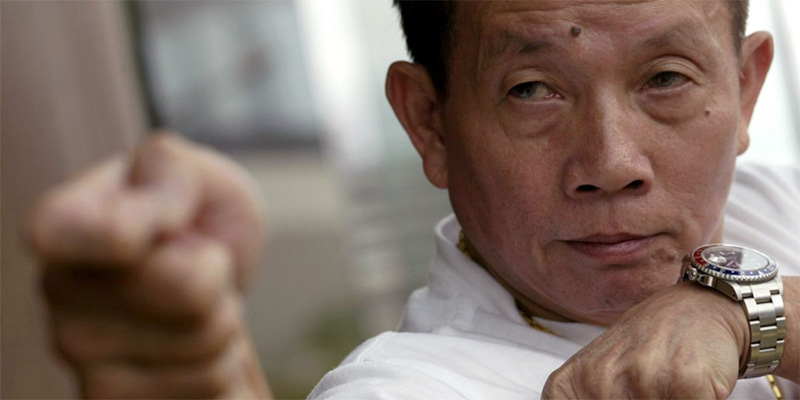It’s perhaps long overdue that Liu Chia-Liang (AKA Lau Kar Leung) is finally getting wider recognition through his contribution to Hong Kong cinema. King Hu had an enviable reputation even way back in the late 60s, while Chang Cheh‘s recent death has reminded many of the vast canon of work he left behind. ‘The Pops’ – as he has affectionately been called – has long been admired, but never quite had the same gravitas in his home territory as his contemporaries.
The intention of this short piece is not to reveal any unknown facts about Liu Chia-Liang (there’s far more informed sources on the internet than me) but just to briefly remember why his great works are deserving of veneration. Like all legendary directors his career has not been without its hiccups – ‘Drunken Master III‘ is the first title that springs to mind – but his very best films deserve their place in the minds of critics around the world.
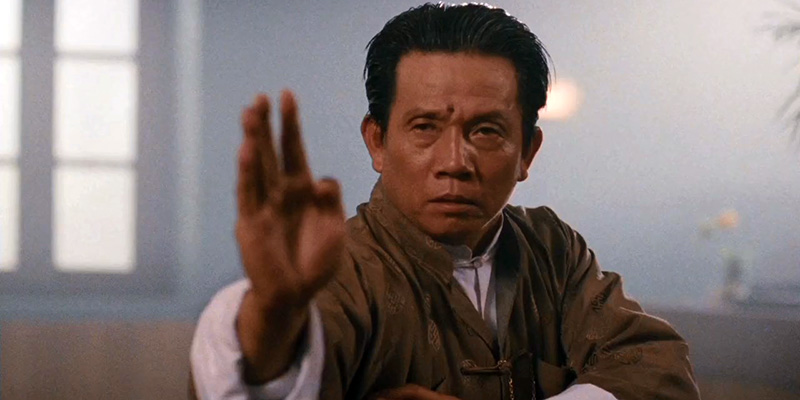
While recent international hits ‘Crouching Tiger, Hidden Dragon‘, ‘Hero‘ and ‘House Of The Flying Daggers‘ have alerted Western critics to the fact that there is scope for expansion within the genre, it needs to be pointed out that ‘The Pops’ had been exploring different themes within the genre. As if these new arthouse films had somehow revealed hitherto untapped possibilities with the swordplay/kung-fu genre, this point has often been conveniently brushed aside by many. The upcoming award for lifetime achievement may not ignite a spark of interest on this side of the world, but it’s surely a sign that Liu Chia-Liang was as close to being a kung-fu ‘auteur’ as anyone.
Lesser directors have had a simple commission: fill the duration with fights, ignore anything that might slow down the pace (such as character development or logic) and recycle from previously successful films. Liu Chia-Liang made his goals a little more challenging though. Make no mistake, Liu always provided action in generous amounts – though quality was just as important – but he also seemed keen to look into the themes beyond the action. The cutural clashes of ‘My Young Auntie’ and ‘The Lady Is The Boss‘ may have aged somewhat (especially the latter), but they underpin Liu’s message of national identity and it’s necessary acceptance of other influences. Both films end with the parochial characters being forced to move close together in their thoughts while still retaining an individual identity. To probe these issues and keep the action quota high takes a director who can achieve a superior balance. Very rarely do we see the underlying themes sacrificed to push more action onto the screen though and this is a mark of the man behind the lens.
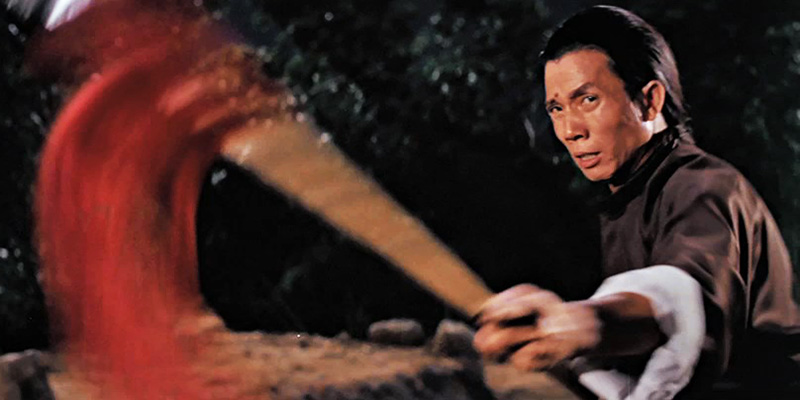
His concentration on themes and relationships creates a superior action film, a genre production with a strong enough emotional spine to be commended without action. While early hits like ‘Spiritual Boxer’ and ‘Challenge Of The Masters‘ had the hallmark of a debutant director tentatively experimenting with ideas, ‘Executioners From Shaolin’ began to indicate that there was a unique vision within Liu’s work. Without any doubt, those first two directorial entries had a skill and eye for detail that was difficult not to ignore, but ‘Executioners From Shaolin’ was arguably the first time the Liu’ imprint was clearly seen on a film. Combining creative action with a focus on characterisation, ‘Executioners From Shaolin‘ was full of incidental scenes that added a richness to the finished article. One memorable sequence is the courtship of Chen Kuan-Tai and Lily Li – a delightful romance that is awkward, yet believable. Such keen insights into the characters away from the action mean that the audience always cared for the characters in Liu’s finest works, a quality that is not to be underestimated.
As Liu crafted a real human element into ‘Executioners Of Shaolin’ with the romance between the two leads, he took the theme of human relationships and friendships and explored it further with later work. While many directors were happy to just feed the audience the usual ‘revenge-themed’ drama, ‘The Pops’ made the spine of two particularly impressive films – ‘Mad Monkey Kung-Fu‘ and ‘Dirty Ho‘ – the unity between the two lead characters. Chang Cheh had dissected the bond of friendship before, but Liu took the idea and peered into it on a more personal level. Gone were the bold patriotic sacrifice and grand gestures, in came moments of introspection and insight. In ‘Mad Monkey Kung-Fu’, the dynamic between master and student is given centre stage. There are no last minute appearances by villains or needless sub-plots, just a well told story that introduces its characters and lets them grow throughout the film. Liu is careful to allow ample time for Hsiao Hou and himself to develop into a brotherly friendship, one that is endearing and adds an extra dimension to the action. As we come to care so much for the heroes thanks to Liu’s patience with non-action scenes, their closing fight scenes are even more enthralling to watch. The film doesn’t just become a mindless showcase of action (albeit superbly choreographed action); it becomes a production that wants us to care about its protagonists.
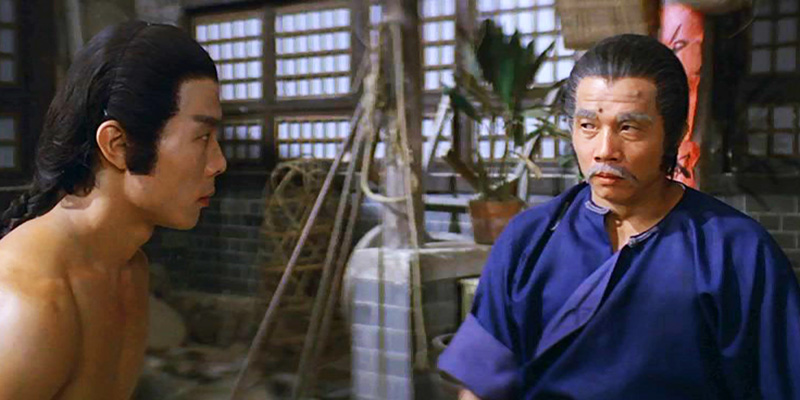
In ‘Dirty Ho’ the two lead characters are unlikely and, for the most part, unwilling allies drawn together by necessity. Liu Chia-Liang throws this odd couple into a number of stressful situations and wondrous fight scenes, but is adamant that the partnership should retain a certain edge. From their first meeting to the enigmatic ending, the two heroes have a tender alliance that is built on the playful teasing they subject each other to throughout the film. The legendary director weaves these character-building scenes into his work to lift the finished product above the common genre fare, a feat that is further evidence of a film-maker who was willing to stretch the boundaries of the studio system he worked within. ‘Dirty Ho’ is the classic Liu Chia-Liang film; there’s a plethora of outstanding confrontations, choreographic invention that still looks fresh today and enough depth to reward anyone willing to scratch the surface.
The work and craft of Liu Chia-Liang is deserving of a proper critical analysis by someone far more qualified than me. There is plenty of masterpieces that I haven’t even mentioned in this short article; from ‘The 36th Chamber Of Shaolin‘ to the dark, brooding ‘The 8 Diagram Pole Fighter‘, these are works that urgently require the appreciation of a wider critical audience. ‘The Pops’ is a director who knew his genre better than anyone – he understood its mechanics, its very core – and this meant that he also contributed some of its greatest works. To the uninitiated, this statement will not seem to be much of a compliment. However, the genre would not be as misunderstood and pointlessly derided as ‘chop sockey’ if more of Liu Chia-Liang’s work was subtitled and shown to a wider audience. While critics now grasp in wonder at the concept of martial arts films being ‘deep’ (thanks to ‘Hero’ et al), there were a few great directors who were quietly experimenting with such concepts long ago. Liu Chia-Liang is one such film-maker and deserves whatever accolades he received or, hopefully, will belated receive.
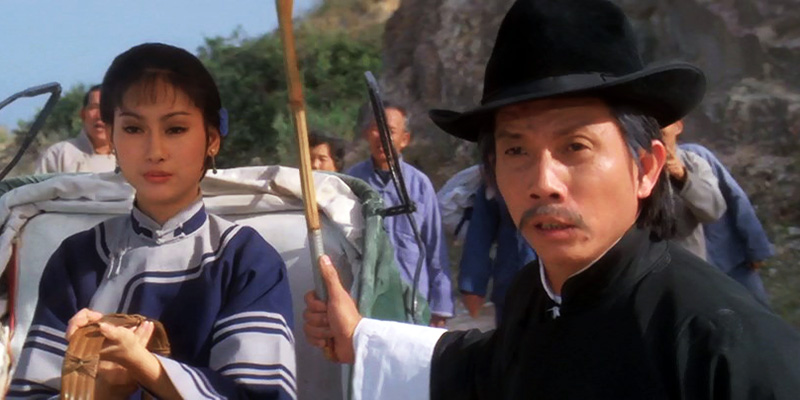
Here are a few recommended Liu Chia-Liang films:
Heroes Of The East
Some of the best choreography ever seen is masterfully blended with an involving story of cultural clashes and misunderstandings.
The 36th Chamber Of Shaolin
The film that took the incidental feature of the hero’s training and turned it into the narrative focus. The character is fleshed out through his physical advancement and the principles he has sworn to live by.
Return To The 36th Chamber
Few directors could take their own masterpiece and create a sequel that not only featured even better action, but also acted as a partial parody/deconstruction of the original.
The 8 Diagram Pole Fighter
Dark, introspective and emotionally draining masterpiece – perhaps one of the genres most important works.
And of course… ‘My Young Auntie’, ‘The Lady Is The Boss’, ‘Executioners From Shaolin’, ‘Drunken Master II‘, ‘Mad Monkey Kung Fu’, ‘Dirty Ho’ and ‘Legendary Weapons Of China’.
- Mission Kiss And Kill - December 7, 2025
- Yojimbo - November 24, 2025
- The Five Venoms - November 9, 2025

